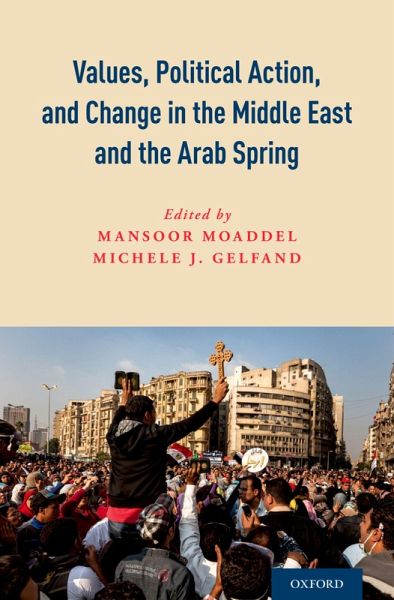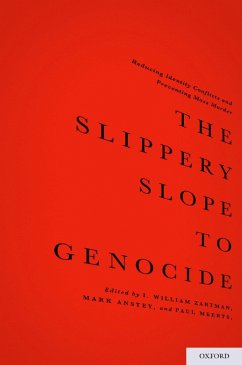
Values, Political Action, and Change in the Middle East and the Arab Spring (eBook, PDF)
Versandkostenfrei!
Sofort per Download lieferbar
43,95 €
inkl. MwSt.
Weitere Ausgaben:

PAYBACK Punkte
22 °P sammeln!
Although many have tried, the spontaneity of the Arab Spring uprisings and the unpredictability of its diverse geographical outcomes have resisted explanation. For social scientists, part of the challenge has been how to effectively measure and analyze the empirical data, while another obstacle has been a lack of attention to the worldviews, value orientations, and long-term concerns from the people of the Middle East and North Africa. In order to meet these challenges head-on, Mansoor Moaddel and Michele J. Gelfand have assembled an international team of experts to explore and employ a new an...
Although many have tried, the spontaneity of the Arab Spring uprisings and the unpredictability of its diverse geographical outcomes have resisted explanation. For social scientists, part of the challenge has been how to effectively measure and analyze the empirical data, while another obstacle has been a lack of attention to the worldviews, value orientations, and long-term concerns from the people of the Middle East and North Africa. In order to meet these challenges head-on, Mansoor Moaddel and Michele J. Gelfand have assembled an international team of experts to explore and employ a new and diverse set of frameworks in order to explain the dynamics of cross-national variation, values, political engagement, morality, and development in these regions. To this end, the authors address a wide range of questions, such as: To what extent do recent events reflect changes in values among the Middle Eastern publics? Are youth uniformly more supportive of change than the rest of the population? To what extent are changes in values connected to changes in identities? How do we explain the process of change in the long term? As Moaddel and Gelfand remark in their book's introduction, "Our hope is that this collective effort will not only contribute to the development of the social sciences in the Middle East and North Africa, but also to practical political actions and public policies that serve social tolerance and harmony, peace, and economic prosperity for the people of the region."
Dieser Download kann aus rechtlichen Gründen nur mit Rechnungsadresse in A, B, BG, CY, CZ, D, DK, EW, E, FIN, F, GR, HR, H, IRL, I, LT, L, LR, M, NL, PL, P, R, S, SLO, SK ausgeliefert werden.













